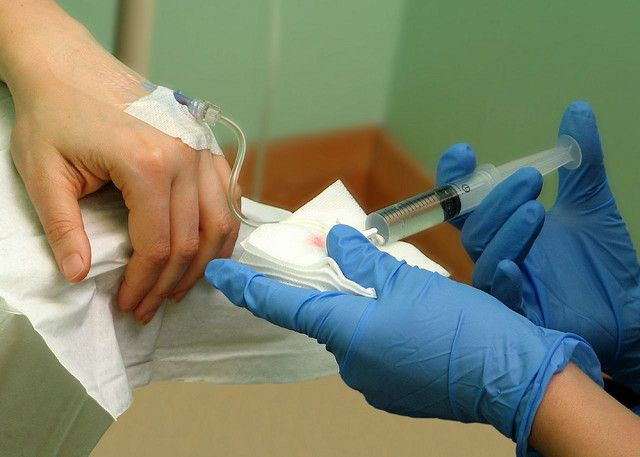People Good At Exploiting Social Media Connections Gain Access To 'Compassionate Use' Experimental Drugs

Whenever a dying patient is given an experimental medical treatment that has not yet been approved by the Food and Drug Administration, this is called “compassionate use.” Yet, the way these potentially life-saving medications are distributed to patients may not be entirely fair, preliminary studies conducted at NYU Langone Medical Center suggest. People who know how to exploit social media connections and offline social networks are more likely to gain access to the drugs, researchers found.
Is it possible to make this process more fair for all concerned?
Investigating this problem of research ethics, Dr. Arthur Caplan, director of the NYULMC division of medical ethics, and his colleagues conducted interviews and surveys and then examined relevant case studies. Worldwide, the group found, compassionate access questions arose for infectious and chronic diseases, terminal and non-terminal conditions. While commonly people believe the FDA is the obstacle for those who want pre-approval access, the government agency almost always defers to the pharmaceutical company involved, the NYU Working Group discovered. In fact, the FDA approved 99 percent of requests it receives for compassionate use of a not-yet approved drug.
The group also discovered biotech and pharmaceutical companies are under no legal obligation to provide their products under compassionate use. A uniform policy is lacking overall. Some companies, for example, have drawn up their own well-thought-out policies to guide decisions about granting access to patients, while other companies decline everyone seeking pre-approved treatments. Still other companies may lack clearly stated guidelines while granting access, on occasion, to some requests. Then again, some companies have been known to alter their policies in the face of public pressure.
Meanwhile the public, generally, supports compassionate use. After all, it is a human instinct to try everything (and anything) to save a dying life. Yet, the researchers cautioned, increasing awareness of and support for compassionate use access could prove detrimental to FDA’s detailed requirements. After all, rushing the medical development process might allow unsafe treatments to slip past the regulatory agency tasked with guarding against this.
However, not everyone believes this would be the case.
“Every drug for cancer and other serious life-threatening illnesses that the Abigail Alliance has pushed for earlier access to in our 13-year history is now approved by the FDA!” wrote Frank Burroughs, founder of The Abigail Alliance, a website and Virginia non-profit dedicated to creating wider access to developmental drugs for cancer and other life-threatening illnesses.
While Burroughs' claim may be true, the clinical studies required by the FDA test drugs not just for safety and effectiveness, but also for the correct dosage strength. A medicine may be life-saving at one strength... and toxic at another. Drugs, then, that eventually gained FDA approval may have originally been proposed at too high a dosage. The pharmaceutical company discovered the right strength through clinical trials. Importantly, the Working Group noted the use of unapproved treatments in seriously or terminally ill patients may actually increase harm by causing more suffering or earlier death.
Dr. William Palmer, commenting on a blog post, supports the current “non-system” rather than creating a new system and some form of national “Expanded Access Institutional Review Board” as suggested by Kaplan and his co-author.
“Something that is scarce, rare, not yet approved, extremely expensive… is never going to be allocated without controversy,” Palmer wrote. In its efforts to be fair, a review board would delay the process of granting compassionate use access, he argued, which would be unjust for some.
“Should an experimental product be made available to an individual patient who is more vocal, more sophisticated in the use of media, more knowledgeable about the system, more adept at electronic searches?" wrote Kaplan and his co-author on this topic. "While it is extraordinarily difficult to say 'no,' it is equally difficult to say 'yes' and be sure that the 'yes' applies fairly to all patients in extreme need."



























